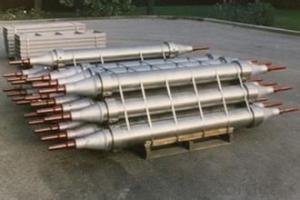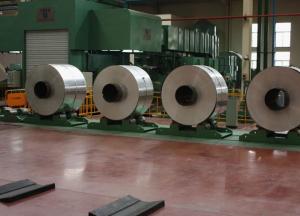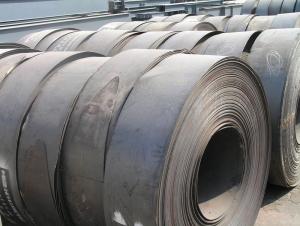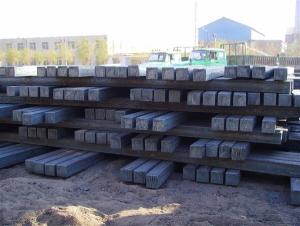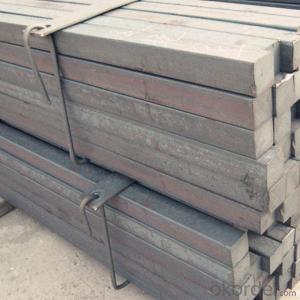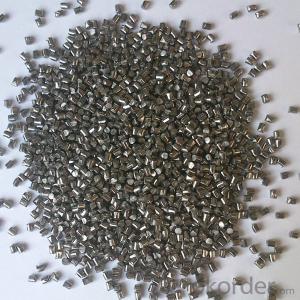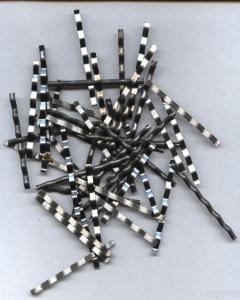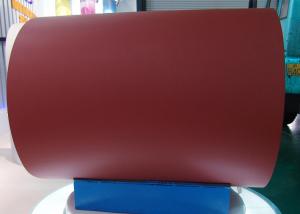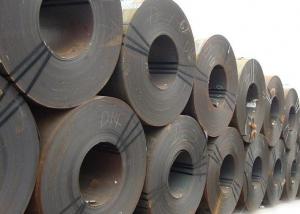Bidragon Less Auxiliaries reheat furnace for rolling mill
- Loading Port:
- Tianjin
- Payment Terms:
- TT OR LC
- Min Order Qty:
- 1000 PCS
- Supply Capability:
- 10000 PCS/month
OKorder Service Pledge
OKorder Financial Service
You Might Also Like
Quick Details
| Condition: | New | Type: | Usage: | Heat Treatment Furnace | |
| Place of Origin: | Brand Name: | Bidragon | Model Number: | BD annealing furnace | |
| Voltage: | 380V | Power(W): | 167KW | Dimension(L*W*H): | customized |
| Weight: | 860KG | Certification: | ISO | Warranty: | one year |
| After-sales Service Provided: | Engineers available to service machinery overseas | Power: | 20kw-300kw | tell: | 0086-372-2190222 |
| email: | sales2015 at biboiler dot com | Furnace Specification: | d 0.1 to 3.0mm width 150 1500mm | model: | BD annealing furnace |
| annealling furnace: | high vacuum | Max. Temperature: | 1100°C | Working Temperature: | 1050°C (for 304 Stainless steel) |
| skype: | bidragon2015 | Product name: | bidragon less auxiliaries reheat furnace for rolling mill |
Packaging & Delivery
| Packaging Detail: | plywood or nude package |
| Delivery Detail: | 7 days after payment |
Specifications
bidragon less auxiliaries reheat furnace for rolling mill
1.vacuum annealing furnace.
2.high vacuum.
3.high temperature
bidragon less auxiliaries reheat furnace for rolling mill
Product Description
1. Application of reheat furnace
It is applicable for the continuous anneal of different material, such as the copper straight pipe/stick, aluminum tube, steel tube, plates parks, etc.
2. Consist parts of reheat furnace
This equipment is mainly composed of the following parts:
transmission system
heating system
cooling system
control system
ammonia decomposition gas supply system
3. Main features:
Continuous heating: doing preheating, heating, temperature-saving, cooling for product continuously, without any limit of the product length.
Stable and reliable: the annealing furnace adopts roller type transmission with frequency control of motor speed, stable and reliable.
Uniform temperature: the hot atmosphere circulation ensures temperature uniform, which makes product very bright.
Unique design: unique design of the cooling zone ensures product cooling homogeneity. The furnace body adopts steel frame structure.
High efficiency: after annealing process, the product furnace will be very light and bright.
Automatic sealing: connection between furnace door and furnace body is automatic sealing, which ensures the machine working safely with high efficiency.
Interlock protection device: the electric fueled annealing furnace equipped with interlock protection device, it can prevent mistake due to wrong operating. Safety and reliable.
Intelligent PID automatic control: the electric annealing furnace adopts intelligent PID data display to control furnace temperature, ensuring the temperature uniform and saving 30% energy.
- Q:How is steel used in the production of marine vessels?
- Steel is extensively used in the production of marine vessels due to its strength, durability, and corrosion resistance. It is employed in various parts of the vessels, including the hull, deck, superstructure, and internal frames. Steel's high tensile strength allows ships to withstand the forces of waves and harsh weather conditions. Additionally, its resistance to corrosion ensures the longevity of the vessels, reducing maintenance costs.
- Q:How is steel mesh used in construction?
- Steel mesh is commonly used in construction for reinforcing concrete structures such as foundations, walls, and slabs. It provides added strength and durability, preventing cracking and increasing the overall structural integrity. The steel mesh is typically placed within the concrete to distribute the loads evenly and resist tension forces, ensuring the stability and longevity of the construction.
- Q:How are steel products used in the manufacturing of furniture?
- Steel products are commonly used in the manufacturing of furniture to provide structural support, durability, and aesthetic appeal. Steel is often used in the construction of chair frames, table legs, and cabinet components, as it offers strength and stability. Additionally, steel can be shaped and formed into various designs and finishes, allowing for versatile and modern furniture designs.
- Q:What are the advantages of using steel in the manufacturing of tanks and vessels?
- There are several advantages of using steel in the manufacturing of tanks and vessels. Firstly, steel is known for its exceptional strength and durability, making it capable of withstanding high pressures and harsh environmental conditions. Secondly, steel is resistant to corrosion, which is crucial for tanks and vessels that come into contact with different liquids and chemicals. Additionally, steel offers versatility in terms of shape and size, allowing for customized designs to meet specific requirements. Lastly, steel is a sustainable and recyclable material, making it a cost-effective and environmentally friendly choice for tank and vessel manufacturing.
- Q:What are the factors to consider while selecting steel products for a specific application?
- When selecting steel products for a specific application, some factors to consider include the strength and durability required for the task, the corrosion resistance needed, the temperature and environment in which the steel will be used, as well as the cost and availability of the chosen steel product. Additionally, factors such as size, shape, and weight may also play a role in the selection process.
- Q:What are the different types of steel coatings and their applications?
- There are several types of steel coatings commonly used in various applications. These include galvanized coatings, which provide corrosion resistance and are commonly used in outdoor structures and automotive parts. Another type is powder coating, which offers durability and aesthetics, often applied to appliances, furniture, and architectural components. Additionally, epoxy coatings provide excellent chemical resistance and are used in industries like food processing and water treatment. Lastly, thermal spray coatings, such as metalizing or ceramic coatings, are applied to enhance wear resistance and thermal insulation in aerospace, automotive, and industrial applications.
- Q:How do steel products contribute to the retail and commercial sector?
- Steel products contribute to the retail and commercial sector by providing durable and versatile materials for construction, manufacturing, and display purposes. From steel shelving units and storage racks to shop fittings and display stands, these products offer strength, stability, and longevity, ensuring the efficient organization and presentation of merchandise in retail stores. Additionally, steel is commonly used in commercial buildings, such as malls and office complexes, for its structural integrity, fire resistance, and aesthetic appeal. Overall, steel products are essential in enhancing the functionality, safety, and visual appeal of retail and commercial spaces.
- Q:What are the different types of steel pipes and their uses?
- There are several types of steel pipes, including carbon steel pipes, stainless steel pipes, alloy steel pipes, and galvanized steel pipes. Carbon steel pipes are commonly used for transporting fluids and gases, while stainless steel pipes are preferred in industries requiring corrosion resistance. Alloy steel pipes are suitable for high-temperature and high-pressure applications, and galvanized steel pipes are used for water supply and plumbing systems due to their rust resistance.
- Q:How is steel wire rope inspected for fatigue and wear?
- Steel wire rope is inspected for fatigue and wear through visual examination and non-destructive tests. This includes inspecting the rope for signs of corrosion, broken wires, or distorted strands. Additionally, magnetic particle inspection and ultrasonic testing are often used to detect hidden defects and measure the rope's internal condition. Regular inspections and maintenance help ensure the integrity and safety of steel wire ropes.
- Q:How are steel products different from iron products?
- Steel products are different from iron products in terms of their composition and properties. While iron is a pure element, steel is an alloy made by combining iron with carbon and other elements. This alloying process gives steel its unique properties such as increased strength, hardness, and resistance to corrosion. Steel products are also more durable and versatile than iron products, making them suitable for various applications in industries like construction, automotive, and manufacturing.
1. Manufacturer Overview |
|
|---|---|
| Location | |
| Year Established | |
| Annual Output Value | |
| Main Markets | |
| Company Certifications | |
2. Manufacturer Certificates |
|
|---|---|
| a) Certification Name | |
| Range | |
| Reference | |
| Validity Period | |
3. Manufacturer Capability |
|
|---|---|
| a)Trade Capacity | |
| Nearest Port | |
| Export Percentage | |
| No.of Employees in Trade Department | |
| Language Spoken: | |
| b)Factory Information | |
| Factory Size: | |
| No. of Production Lines | |
| Contract Manufacturing | |
| Product Price Range | |
Send your message to us
Bidragon Less Auxiliaries reheat furnace for rolling mill
- Loading Port:
- Tianjin
- Payment Terms:
- TT OR LC
- Min Order Qty:
- 1000 PCS
- Supply Capability:
- 10000 PCS/month
OKorder Service Pledge
OKorder Financial Service
Similar products
New products
Hot products
Related keywords
